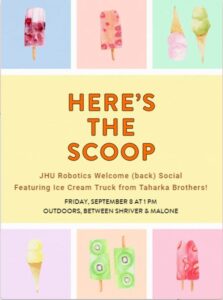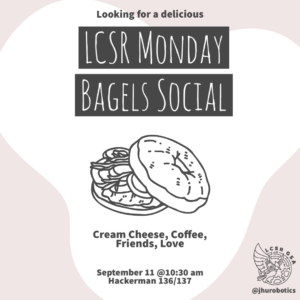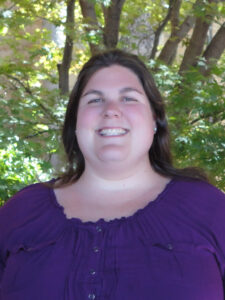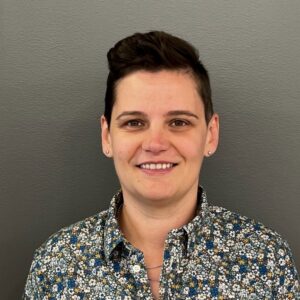Calendar
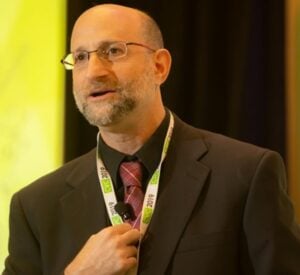 Dr. Juan Wachs is a Professor and Faculty Scholar in the Industrial Engineering School at Purdue University, Professor of Biomedical Engineering (by courtesy) and an Adjunct Associate Professor of Surgery at IU School of Medicine. He is currently serving at NSF as a Program Director for robotics and AI programs at CISE. He is also the director of the Intelligent Systems and Assistive Technologies (ISAT) Lab at Purdue, and he is affiliated with the Regenstrief Center for Healthcare Engineering. He completed postdoctoral training at the Naval Postgraduate School’s MOVES Institute under a National Research Council Fellowship from the National Academies of Sciences. Dr. Wachs received his B.Ed.Tech in Electrical Education in ORT Academic College, at the Hebrew University of Jerusalem campus. His M.Sc and Ph.D in Industrial Engineering and Management from the Ben-Gurion University of the Negev, Israel. He is the recipient of the 2013 Air Force Young Investigator Award, and the 2015 Helmsley Senior Scientist Fellow, and 2016 Fulbright U.S. Scholar, the James A. and Sharon M. Tompkins Rising Star Associate Professor, 2017, and an ACM Distinguished Speaker 2018. He is also the Associate Editor of IEEE Transactions in Human-Machine Systems, Frontiers in Robotics and AI.
Dr. Juan Wachs is a Professor and Faculty Scholar in the Industrial Engineering School at Purdue University, Professor of Biomedical Engineering (by courtesy) and an Adjunct Associate Professor of Surgery at IU School of Medicine. He is currently serving at NSF as a Program Director for robotics and AI programs at CISE. He is also the director of the Intelligent Systems and Assistive Technologies (ISAT) Lab at Purdue, and he is affiliated with the Regenstrief Center for Healthcare Engineering. He completed postdoctoral training at the Naval Postgraduate School’s MOVES Institute under a National Research Council Fellowship from the National Academies of Sciences. Dr. Wachs received his B.Ed.Tech in Electrical Education in ORT Academic College, at the Hebrew University of Jerusalem campus. His M.Sc and Ph.D in Industrial Engineering and Management from the Ben-Gurion University of the Negev, Israel. He is the recipient of the 2013 Air Force Young Investigator Award, and the 2015 Helmsley Senior Scientist Fellow, and 2016 Fulbright U.S. Scholar, the James A. and Sharon M. Tompkins Rising Star Associate Professor, 2017, and an ACM Distinguished Speaker 2018. He is also the Associate Editor of IEEE Transactions in Human-Machine Systems, Frontiers in Robotics and AI.
WE ARE BACK WITH OUR MONDAY BAGELS TRADITION!!
Please join us this coming Monday 09/11 at 10.30 am at the students’ office space in Hackerman 136/137 for some fresh morning bagels!! We will provide various cream cheese spreads, and there will be a coffee machine, water boiler and K-cups for you to enjoy as well (bring your own mugs though).
Looking forward to seeing you all there!
CHEERIOS!
Lydia & Benjamin
The LCSR Graduate Student Association (LCSR-GSA)
Laboratory for Computational Sensing and Robotics
Johns Hopkins University
Mark S. Savage is Associate Director, Life Design Lab & Life Design Educator for Engineering master’s Students at Johns Hopkins University.
Abstract: The haptic (touch) sensations felt when interacting with the physical world create a rich and varied impression of objects and their environment. Humans can discover a significant amount of information through touch with their environment, allowing them to assess object properties and qualities, dexterously handle objects, and communicate social cues and emotions. Humans are spending significantly more time in the digital world, however, and are increasingly interacting with people and objects through a digital medium. Unfortunately, digital interactions remain unsatisfying and limited, representing the human as having only two sensory inputs: visual and auditory.
This talk will focus on methods for building haptic and multimodal models that can be used to create realistic virtual interactions in mobile applications and in VR. I will discuss data-driven modeling methods that involve recording force, vibration, and sounds data from direct interactions with the physical objects. I will compare this to new methods using machine learning to generate and tune haptic models using human preferences.
Bio: Heather Culbertson is a Gabilan Assistant Professor of Computer Science at the University of Southern California. Her research focuses on the design and control of haptic devices and rendering systems, human-robot interaction, and virtual reality. Particularly she is interested in creating haptic interactions that are natural and realistically mimic the touch sensations experienced during interactions with the physical world. Previously, she was a research scientist in the Department of Mechanical Engineering at Stanford University. She received her PhD in the Department of Mechanical Engineering and Applied Mechanics (MEAM) at the University of Pennsylvania. She is currently serving as Publications Chair for IEEE Haptics Symposium. Her awards include the NSF CAREER Award, IEEE Technical Committee on Haptics Early Career Award, and the Okawa Research Foundation Award.
IROS practice talks by the students followed by 5-minute Q&A session after each paper.
- Hisashi Ishida
- Juan Barragan
- Michael Kam
- Jiawei Liu
- Jim Wang.
Abstract:
The success in medical device development depends on alignment between needs of patients, providers, and hospitals. In this talk I will cover 20 years of my journey in defining clinical needs, business objectives, and developing products in the space medical devices and robotics. I will discuss products across image guidance, navigation, ultrasound, and robotics technologies, starting with products in electrophysiology mapping and lung interventions, covering breakthroughs in quantitative imaging for ultrasound and AI-based ultrasound exams. We will talk about projects that worked and those that failed addressing key issues in the development cycle. In the final section, I will cover surgical and interventional robotic developments and Johnson & Johnson.
As VP of Robotic Strategy at Johnson and Johnson MedTech, Aleksandra is leading Johnson & Johnson efforts in defining the future of surgical robotics. Johnson & Johnson MedTech is present in almost every operating room in the world with more than 75 million procedures each year. Aleksandra has over 20 years of experience in medical device and robotics. Starting her career in Germany, at RWTH Aachen University, Helmholtz Institute and University Hospital, Aleksandra obtained PhD (Dr. Ing.) with specialization in surgical robotics. After graduate school, Aleksandra spend 15 years at Philips in New York and Boston, starting as a scientist developing products across different clinical areas (e.g., electrophysiology, vascular interventional, lung interventions, cardiology) with technical focus on image guidance, navigation, and robotics. In the later years, she became innovation lead for Ultrasound and subsequently Image Guided Therapy at Philips. Today, she heads strategy for leading surgical robotics company Johnson & Johnson. Aleksandra grew up in former Yugoslavia (Montenegro and Serbia). She obtained her master’s degree (Dipl.-Ing.) in Electrical Engineering from Belgrade University in Serbia and PhD in Engineering from RWTH Aachen University in Germany. Strong believer in formal education, Aleksandra also has executive degree from MIT Sloan School of Management and certificate in Industrial Design from Massachusetts College of Art and Design.
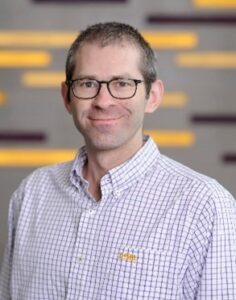 Continuum robots change their shape with elastic deformations rather than mechanical joints and are often elastically deform under typical forces for their applications. They have advantages in some environments where geometry may be complex and not well-known in advance of operations, which is a common feature of many applications outside of factory settings. Continuum robots leverage contact and deformation to complete tasks, relying on passive mechanical behaviors in addition to software-based intelligence and traditional control systems. For example, robots with slender, snake-like, elastic bodies can navigate the tortuous human anatomy like the colon or the esophagus to perform surgery, or they can navigate through challenging industrial environments like pipelines and machinery to perform “minimally invasive” inspection and maintenance. However, slender bodies and mechanical softness come with distinct engineering challenges. Many slender-bodied soft robots have adopted remote actuation approaches that suffer from exponentially worsening friction as they bend. Additionally, many approaches to actuation result in an undesirable coupling between actuators. In this seminar, I will describe our recent research that has focused on improving the understanding of continuum mechanism manipulator designs, models, and applications. Ongoing studies are aimed at (i) improving the design of electromechanically driven continuum robots; (ii) investigating methods to mitigate friction in long, slender devices; and (iii) improving modeling approaches for continuum robots.
Continuum robots change their shape with elastic deformations rather than mechanical joints and are often elastically deform under typical forces for their applications. They have advantages in some environments where geometry may be complex and not well-known in advance of operations, which is a common feature of many applications outside of factory settings. Continuum robots leverage contact and deformation to complete tasks, relying on passive mechanical behaviors in addition to software-based intelligence and traditional control systems. For example, robots with slender, snake-like, elastic bodies can navigate the tortuous human anatomy like the colon or the esophagus to perform surgery, or they can navigate through challenging industrial environments like pipelines and machinery to perform “minimally invasive” inspection and maintenance. However, slender bodies and mechanical softness come with distinct engineering challenges. Many slender-bodied soft robots have adopted remote actuation approaches that suffer from exponentially worsening friction as they bend. Additionally, many approaches to actuation result in an undesirable coupling between actuators. In this seminar, I will describe our recent research that has focused on improving the understanding of continuum mechanism manipulator designs, models, and applications. Ongoing studies are aimed at (i) improving the design of electromechanically driven continuum robots; (ii) investigating methods to mitigate friction in long, slender devices; and (iii) improving modeling approaches for continuum robots.
Bio:
Hunter B. Gilbert received the B.S. degree in mechanical engineering in 2010 from Rice University (Houston, Texas), and the Ph.D. degree in mechanical engineering in 2016 from Vanderbilt University (Nashville, Tennessee). He conducted a postdoctoral fellowship in the Physical Intelligence Department of the Max Planck Institute for Intelligent Systems (Stuttgart, Germany), supported by an Alexander von Humboldt Stiftung postdoctoral fellowship from 2016-2019. He is currently an Associate Professor of Mechanical Engineering at Louisiana State University, where he is co-director of the Innovation in Control and Robotics Engineering (iCORE) research laboratory. He is an Associate Editor for the IEEE Robotics and Automation Letters and for Frontiers in Robotics and AI. His research interests are centered on several themes within applied mechanics and dynamic systems: mechanically “soft” or deformable robots, systems and technologies focused on human health and safety, and modeling of complex dynamic systems.
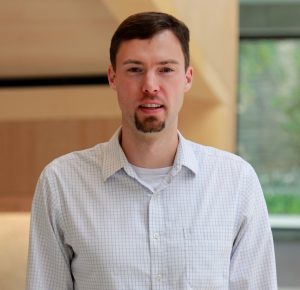 Eric Diller, Associate Professor, Department of Mechanical and Industrial Engineering, Robotics Institute, Institute of Biomedical Engineering (cross-appointed); University of Toronto
Eric Diller, Associate Professor, Department of Mechanical and Industrial Engineering, Robotics Institute, Institute of Biomedical Engineering (cross-appointed); University of Toronto
Abstract: Micro-scale mobile robots can physically access small spaces in a versatile and non-invasive manner. Such microrobots under several mm in size have potential unique applications for surgery, sensing and drug delivery in healthcare, microfactories and as scientific tools. These devices are powered and controlled remotely using externally-applied magnetic fields for motion in 3D. This talk will introduce how we design and produce these tiny machines, as well as how we create magnetic fields that can move them as functional robots inside the body. Moving microrobots for swimming, crawling and grasping powered by these magnetic fields will be shown, along with our progress towards medical applications for diagnosis in the gut, and in neurosurgery.
Eric Diller received the B.S. and M.S. degree in mechanical engineering from Case Western Reserve University in 2010 and the Ph.D. degree in mechanical engineering from Carnegie Mellon University in 2013. He is currently Associate Professor in the Department of Mechanical and Industrial Engineering and the Robotics Institute at the University of Toronto, where he is director of the Microrobotics Laboratory. His research interests include micro-scale robotics, and features fabrication and control relating to remote actuation of micro-scale devices using magnetic fields, micro-scale robotic manipulation, and smart materials. He is an Associate Editor of the Journal of Micro-Bio Robotics, and received the IEEE Robotics & Automation Society 2020 Early Career Award. He has also received the 2018 Ontario Early Researcher Award, the University of Toronto Innovation Award, and the Canadian Society of Mechanical Engineering’s 2018 I.W. Smith Award for research contributions in medical microrobotics. He envisions an accessible future of medicine free of invasive colonoscopies, open surgery and long recoveries.
Lab website: http://microrobotics.mie.utoronto.ca/


